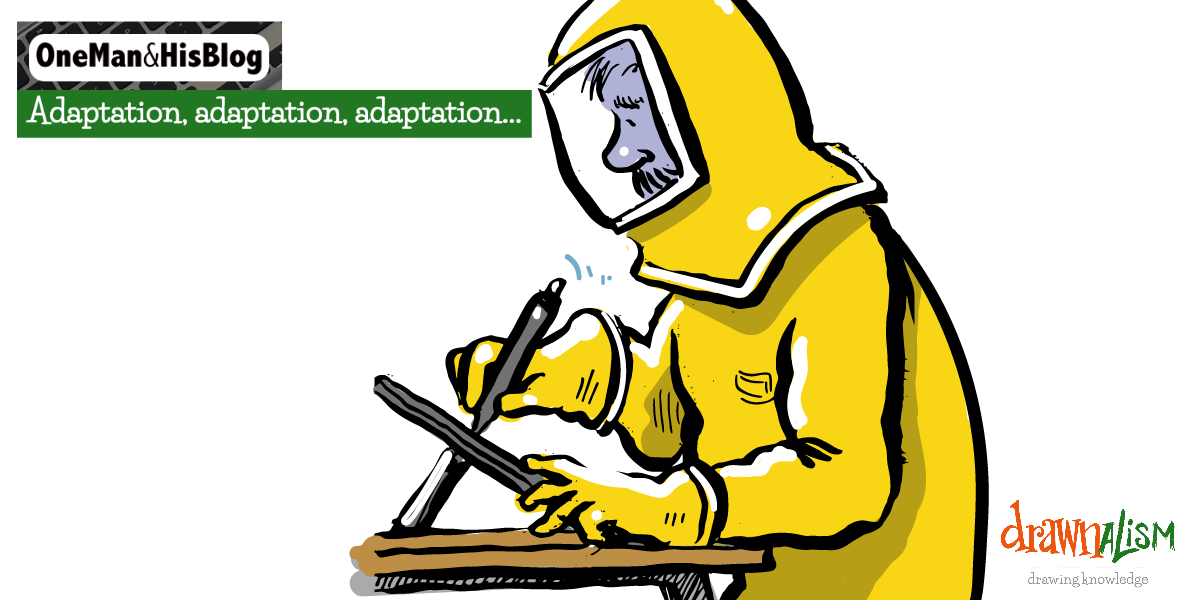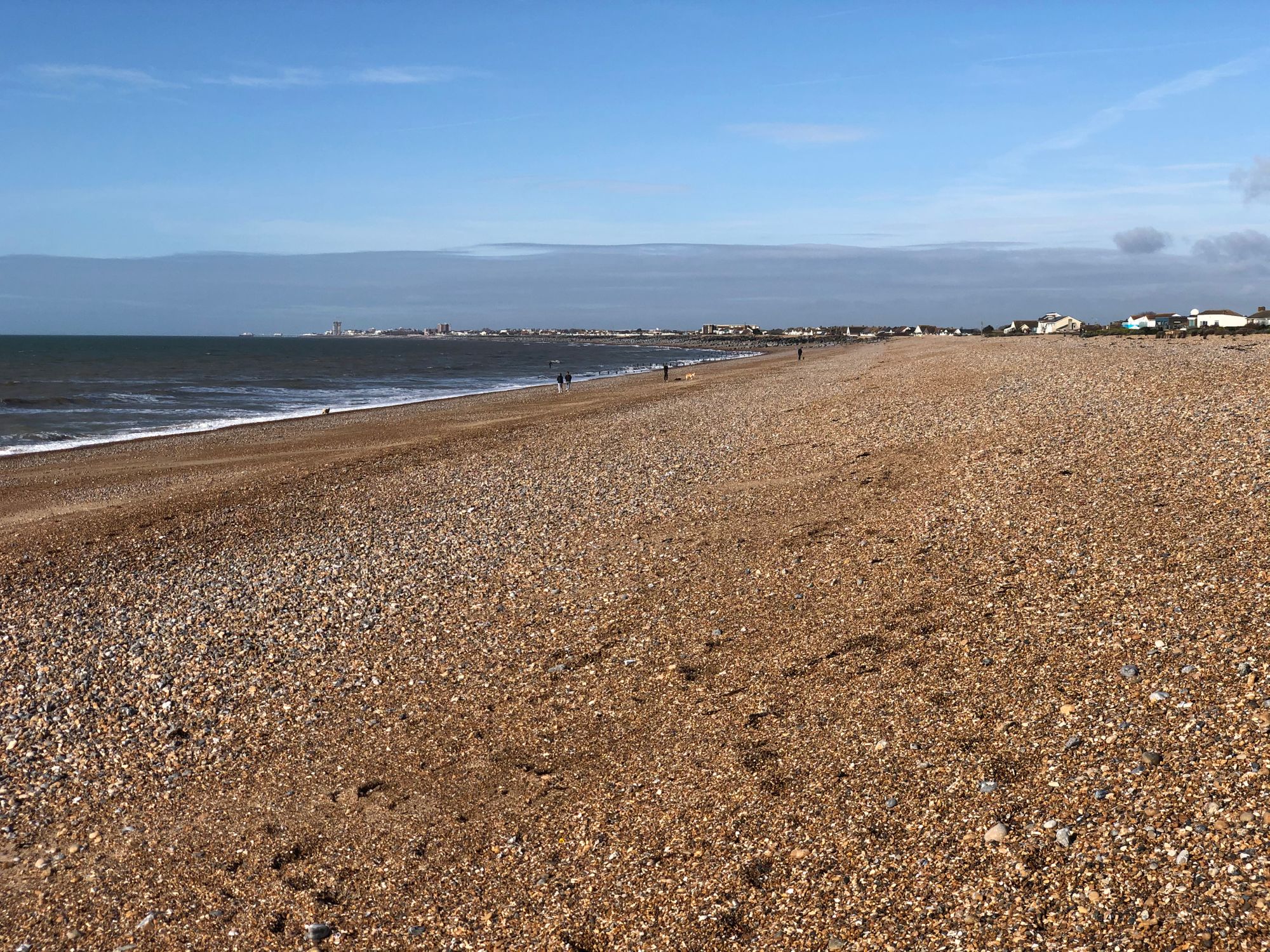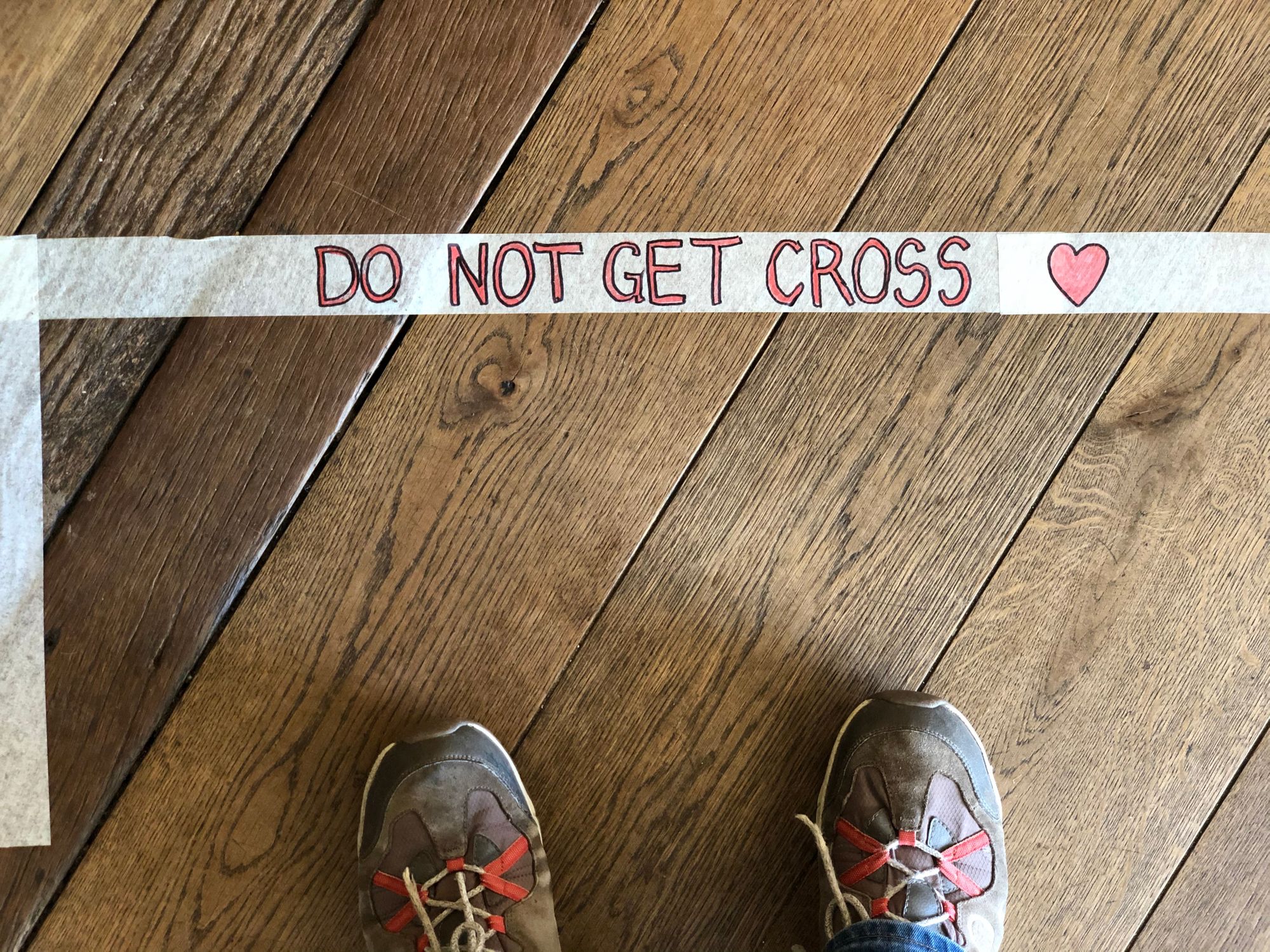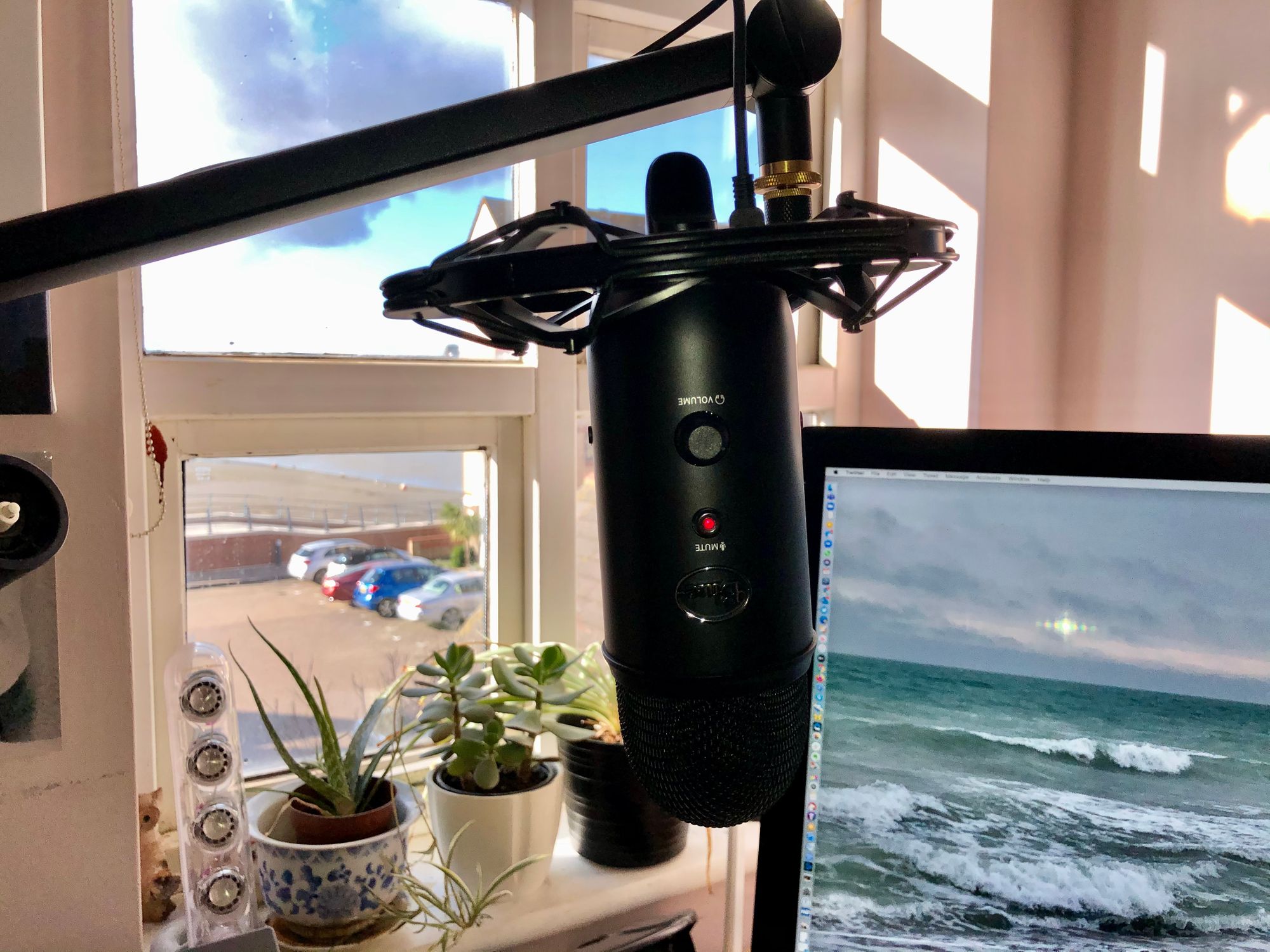
Working from home: one man’s survival guide
I’ve got nearly a decade of experience of self-employment which lead to me working a significant amount of my time from home. Here’s what I’ve learnt.
Welcome to my world. Many of you are probably finding yourselves working from home for an extended period for the first time in your life. I’ve been doing this for eight years now, and I thought I’d share some of the things I have learned along the way — and some of the ones that seem flippant are the most important.
Working largely on your own for long periods can have an impact on your mental health, and now is not a great time for that to happen.
As my good friends and colleagues at Drawnalism put it:
And putting some structure back in matters…
Here's some structure, from my experience. You're going to hate the first one, so let's just get it over with, shall we?
Get dressed
Oh, I know a lot of you are going to despise me for this one, but sitting around in your pyjamas all day gets really old, really fast. Get dressed before you settle down to work. It’s great signal to your brain that it’s now “work time”, and if you’re not used to working at home, you’ll need signals like that to keep yourself focused.
And here’s something that works for me: sometimes I change at the end of the working day to give myself permission to “log off”. More on that further down.
(I’m not telling you what I change into. Nobody but my wife should have to deal with that…)
Get yourself a fussy habit

I like making posh coffee in a fussy way. It gets me away from my screen, and forces me to stay away from it for longer than the time it takes to use instant coffee or a teabag. Now is the time for an Aeropress, V60 or just a good, old-fashioned teapot.
Give yourself a screen break, and a wee reward at the same time. And it helps you stay hydrated. Just don't get sucked into "washing up, tidying the shelves and sweeping the floor" procrastination. Save that for outside working hours.
Get yourself a virtual hangout
Loneliness is your enemy. Don’t under-estimate it. If I’m not careful, I can go for several days with no adult human company, bar half an hour with my tired wife when she gets back from work. In the current crisis, you need to get familiar with tools like Slack, Zoom or even (God forbid) Microsoft Teams. Get your work colleagues in there, and use it for both work organising - and for general banter, even if you have to hive that off into a separate channel.
If you’re a manager, don’t be an arse. Seriously. People need to chat, joke and blow off steam. Don’t insist on keeping the work channels serious and on-topic, because people need to replicate the office small talk, both for team cohesion, and for their own health. Euan Semple has blogged about this.
The longer this goes on, the more you'll need some community management expertise. (I can actually help with that - feel free to drop me a line if you need some support setting community management policies and managing teams remotely. I have 15 years of experience in this space. Plug over. 😇)
Get some exercise

In an ideal world, you need to get off your no doubt shapely and delightful posterior, and actually let muscles other than your brain do some work. It's easy not to do it, but you will work a whole lot better if you give yourself half an hour for some exercise.
I can count myself lucky, because I live a very short walk from the beach above, which is perfect for some social distancing-friendly exercise. Not everyone will have that. But if you aren’t in self-isolation, taking careful routes to the park, river bank or elsewhere to minimise contact with others while exercising in nature will do you the world of good.
And yes, I mentioned nature for a reason. We'll come back to that.
If you are stuck at home, Julia Buckley offers some great advice on exercising there - and she's live streaming sessions on Facebook regularly.
Get a plant. Or a picture of one.
Human beings respond well to views and pictures of the natural world. once again, I’m lucky because I have a river view from my office window (over a car park, admittedly.) You will feel calmer and more relaxed if you have that, or exercise in nature - or even have a plant or a photo of nature in your sightline.
It really works. I recommend Sue Thomas’s excellent book Nature and Wellbeing in the Digital Age, if you don’t believe me.
Learn to log off
When your home is your office, actually mentally disconnecting from work is even harder than usual. But your brain needs that downtime.
Needs.
You're not doing yourself or your employer any good if you can't work effectively through burn out.
I’m lucky enough to have a small room in the house that functions as my office, and I can shut the door and walk away. But that’s not going to protect me once my wife starts working from home later in the week. I’ll be working in the living room (most likely), and will have to revert to what I did when I lived in a flat - close up the laptop, put my work notebooks and files away in a bag, and prepare the room for “evening mode”.
This will also stop my children destroying my work and notes through creative illustrations when they get home from school.
Get a little social interaction

Your ability to do this might change as the pandemic progresses, but honestly, a walk to the local coffee shop, a chat with the barista, and a walk home will make a huge difference to your working life. We’re not quite in the total lockdown where this is impossible (in the UK at least - I’m aware some readers are) so enjoy it while you can. My local coffee shop has actually taped up the floor to help enforce social distancing, which is helpful.
Before all this happened, going and working in the coffee shop for an hour or two was important. That might not be an option for a while, but let’s do what we can to keep those places open, shall we?
I know some of you reading this have been home workers for longer than I have. Please drop me a line let me know whether you agree, disagree, or have any hints for other ways of making this crisis easier on everyone.
Header image by Drawnalism, visual journalists who have some creative solutions for keeping teams communicating at the moment…
Sign up for e-mail updates
Join the newsletter to receive the latest posts in your inbox.










